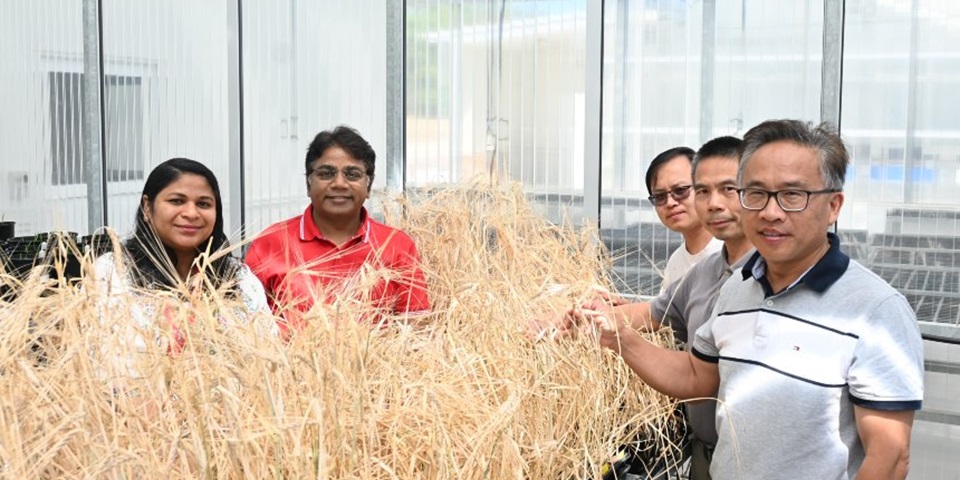
Scientists Sequence Wild Barley Genome; Paving the Way for Climate-Resilient Crops
March 19, 2025| |
Scientists from Murdoch University in Australia and the Beijing Academy of Agriculture and Forestry Sciences in China have unveiled the first chromosome-scale genome of the wild barley species Hordeum brevisubulatum, known for its exceptional tolerance to alkaline and saline soils.
The study, published in Nature Plants, identified the wild barley's critical genetic adaptations, including the duplication of stress-response genes responsible for its efficient nutrient intake under alkaline stress. These genes doubled in biomass and offered improved yields in harsh conditions when overexpressed. The team also discovered that a fungal-derived gene previously known for disease resistance was found to reduce oxidative stress in saline-alkaline environments.
The international research team assembled the high-quality genome of H. brevisubulatum and re-sequenced 38 accessions across seven related species. From their findings, the team developed a new hexaploid crop, Tritordeum (AABBII), by replacing wheat's ‘D' subgenome with H. brevisubulatum's I genome. This new crop showed a remarkable 48% increase in nitrate uptake and a 28% increase in grain yield under stress compared to conventional wheat.
For more details, read the news article in Murdoch University News.
| |
You might also like:
- International Research Team Publishes Barley Pangenome
- Century-Old Experiment and New Research Identify Genes that Help Barley's Adaptability
- Scientists Crack the Code for Bigger Barley Grains
Biotech Updates is a weekly newsletter of ISAAA, a not-for-profit organization. It is distributed for free to over 22,000 subscribers worldwide to inform them about the key developments in biosciences, especially in biotechnology. Your support will help us in our mission to feed the world with knowledge. You can help by donating as little as $10.
-
See more articles:
-
Plant
- Researchers in Japan Develop Genome Editing Method that Partially Inihibits Gene Function
- EU Council Agrees Negotiating Mandate for NGTs
- Scientists Sequence Wild Barley Genome; Paving the Way for Climate-Resilient Crops
- Australia's Gene Technology Regulator Approves Field Trial of GM Sorghum
-
Animal
- Unlocking the Potential of Animal Biotech in the Philippines: Research Updates and Regulatory Prospects
-
Food
- Report Projects Boost in Demand from GM Food Market in Upcoming Years
- FSA Review Explores Consumer Responses to Cell-Cultivated Products
-
Health
- Experts Discover New CRISPR-Cas Systems
-
Read the latest: - Biotech Updates (February 11, 2026)
- Gene Editing Supplement (January 28, 2026)
- Gene Drive Supplement (February 22, 2023)
-
Subscribe to BU: - Share
- Tweet

